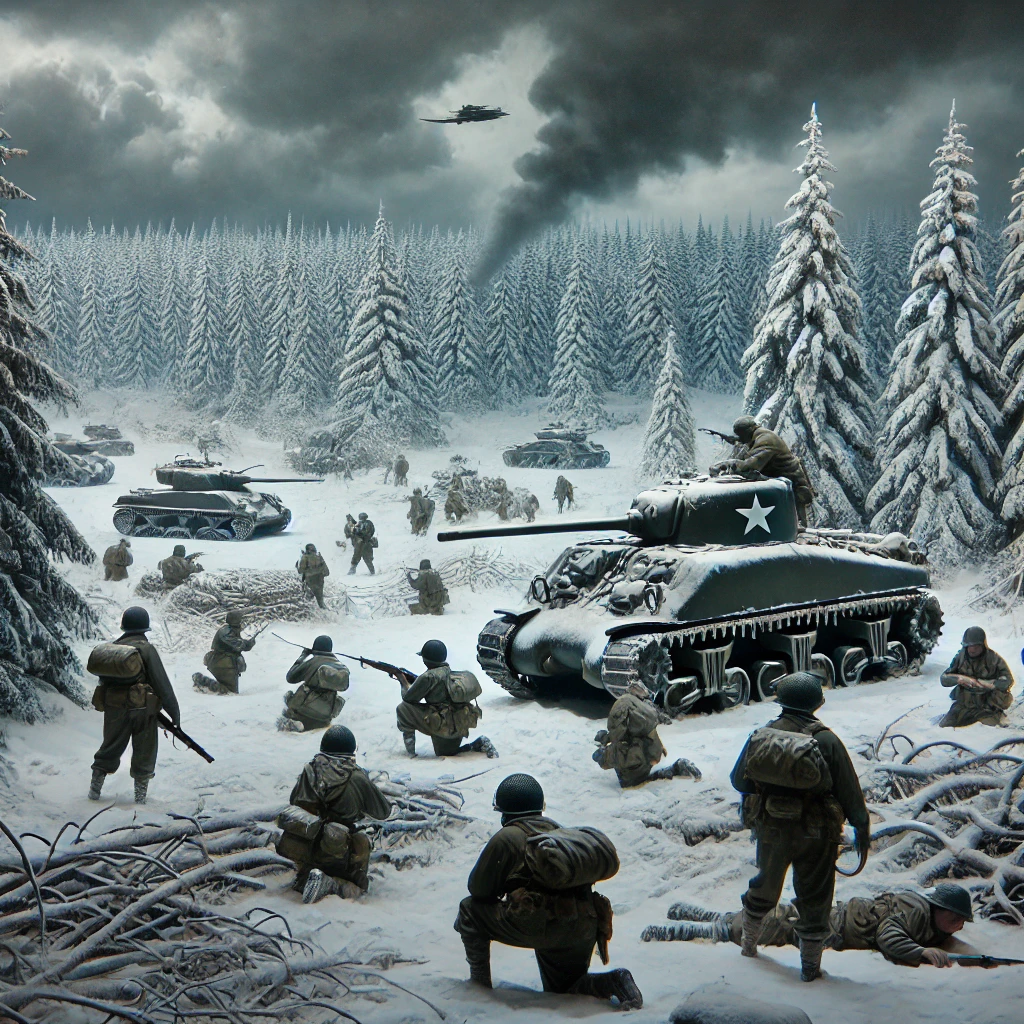On December 16, 1944, one of the largest and most crucial battles of World War II, the Battle of the Bulge, commenced. This surprise German offensive on the Western Front marked a desperate attempt to turn the tide of the war in Adolf Hitler’s favor. The battle would go on to test the resolve of Allied forces, alter the trajectory of the war, and leave a lasting impact on military strategy and global history.

The Road to the Battle
As 1944 drew to a close, the Allied forces had achieved significant victories across Europe. Following the successful D-Day landings and the liberation of France, they were advancing toward Germany. However, Hitler devised a bold and risky plan to split the Allied lines, capture the strategic port of Antwerp, and force a negotiated peace. The Ardennes Forest, a heavily wooded region deemed unlikely for an attack, was chosen as the staging ground.
In the early hours of December 16, German forces launched a surprise assault involving over 200,000 troops, nearly 1,000 tanks, and extensive artillery. The attack initially overwhelmed the unprepared American units stationed in the Ardennes. The Germans advanced rapidly, creating a bulge in the Allied lines, from which the battle derives its name.
The Significance of the Battle

The Battle of the Bulge became the largest and bloodiest engagement for American forces during World War II, with over 19,000 U.S. soldiers killed and tens of thousands wounded or captured. Despite the staggering losses, the battle showcased the resilience and determination of the Allied forces. Key defensive stands, such as the siege of Bastogne, where the 101st Airborne Division held firm despite being surrounded, became legendary.
The battle also revealed cracks in the German war machine. While the initial offensive was formidable, it lacked the resources to sustain prolonged success. Fuel shortages, logistical challenges, and fierce Allied resistance stalled the German advance, ultimately leading to their retreat by late January 1945.
Lasting Impacts and Legacy
The failure of the Battle of the Bulge was a significant blow to Germany’s war effort, hastening the Allied advance into German territory and contributing to the eventual surrender of Nazi forces in May 1945. It marked the final major German offensive of the war and underscored the importance of intelligence, preparation, and adaptability in military operations.
The battle also had profound effects on the soldiers who fought in it and the nations they represented. The heroism displayed by Allied troops during the brutal winter conditions reinforced the importance of unity and perseverance. Commemorations and memorials dedicated to the Battle of the Bulge continue to serve as reminders of the sacrifices made to preserve freedom.
A Lesson for Future Generations

Today, the Battle of the Bulge stands as a testament to the resilience of Allied forces and the turning points that define the course of history. Its lessons in strategy, leadership, and the human cost of war remain relevant to military leaders and historians alike. The battle’s enduring legacy reminds us of the fragility of peace and the collective effort required to maintain it.
